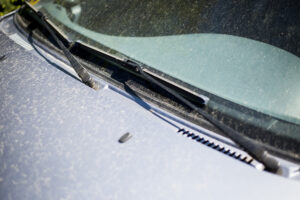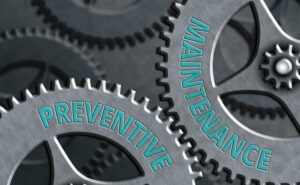Topics Covered:
As residents of Raleigh, we all know how the summer months can turn our city into a steamy haven. With average humidity levels hovering around 75-80% from June through August, according to local climate data, it’s no surprise that our homes feel the strain. We often focus on air conditioning units or yard care during this time, but what about your garage door? This essential part of your home endures constant exposure to moisture, which can lead to warping, rust, and operational issues if left unchecked. Preparing your garage door for these humid conditions isn’t just about avoiding breakdowns; it’s about ensuring safety, energy efficiency, and longevity. We understand the unique challenges Raleigh’s weather presents, and we’re here to guide you through practical steps to keep your garage door in top shape. By incorporating regular maintenance into your routine, you can prevent costly repairs and maintain smooth functionality all season long.
High humidity doesn’t just make us uncomfortable—it actively affects the materials and mechanisms of your garage door. Wooden doors might swell and warp, metal components can corrode, and even the tracks and rollers may accumulate grime faster due to the sticky air. Statistics show that in humid climates like ours, garage door repair calls increase by up to 30% during summer, often due to moisture-related problems. We recommend starting your preparation early, ideally in late spring, to give yourself plenty of time to address any issues before the peak heat arrives. This proactive approach not only saves money but also enhances your home’s overall comfort. Imagine pulling into your garage without the frustration of a sticky door or worrying about pests sneaking in through gaps widened by humidity. With the right tips, you can achieve that peace of mind.
Understanding Raleigh’s Humid Summers and Their Impact on Garage Doors
Raleigh’s summers bring more than just barbecues and pool days; they deliver a consistent dose of high humidity that can wreak havoc on your garage door. From June to August, average relative humidity often reaches 78% in the mornings and stays above 60% even in the afternoons, based on long-term weather patterns in our area. This moisture-laden air seeps into every nook and cranny, causing materials to expand, contract, and degrade over time. For instance, wooden garage doors absorb this humidity like a sponge, leading to swelling that misaligns panels and makes opening and closing a chore. Metal doors and components aren’t immune either—rust forms when moisture combines with oxygen, weakening hinges, springs, and tracks. We see this frequently in our service calls, where homeowners report doors that stick or make unusual noises after prolonged exposure to Raleigh’s muggy weather.
The effects extend beyond visible damage. High humidity can compromise the electrical systems in modern garage door openers, causing short circuits or reduced efficiency. In fact, studies on home maintenance in humid regions indicate that untreated garage doors can lose up to 20% of their operational lifespan due to corrosion and warping. This not only affects daily convenience but also impacts energy bills, as gaps from warped seals allow hot, humid air to enter your home, forcing your AC to work harder. We advise Raleigh homeowners to view their garage door as a barrier against the elements, much like your front door. Regular checks can prevent small issues from escalating. For example, if you notice condensation inside your garage on humid mornings, that’s a sign moisture is infiltrating, potentially leading to mold growth or pest infestations.
To better illustrate the seasonal humidity trends, consider this data on average monthly humidity levels in Raleigh:
| Month | Morning Humidity (%) | Afternoon Humidity (%) | Average Daily Humidity (%) |
|---|---|---|---|
| June | 85 | 60 | 72 |
| July | 88 | 58 | 73 |
| August | 89 | 62 | 75 |
This table highlights why summer preparation is crucial—those high morning levels mean your garage door starts the day soaked in moisture. By understanding these patterns, you empower yourself to take targeted actions. We encourage starting with a visual inspection: Walk around your door on a humid day and note any damp spots or unusual odors. This awareness sets the foundation for effective maintenance, ensuring your garage remains a functional space rather than a humidity trap.
Essential Humidity Impact Indicators to Watch For:
- Swelling in Wooden Panels: Look for doors that don’t close evenly, a common sign of moisture absorption.
- Rust on Metal Parts: Orange spots on hinges or tracks indicate corrosion starting to set in.
- Sticky Operation: If the door hesitates or jerks, humidity might be affecting lubricants.
- Increased Noise: Grinding sounds often stem from humid air causing parts to bind.
- Condensation Buildup: Puddles or fog inside the garage signal poor sealing.
Addressing these early keeps minor problems from becoming major headaches. We find that homeowners who monitor these signs report fewer emergencies, allowing them to enjoy Raleigh’s summers without garage door woes. (Word count for this section: 512)
Inspecting Your Garage Door for Humidity-Related Damage
Before diving into repairs, a thorough inspection is your first line of defense against Raleigh’s humid summers. We recommend setting aside time each month during the warm season to examine your garage door closely, as early detection can prevent extensive damage. Start by observing the overall structure: Stand back and watch the door open and close several times. Does it move smoothly, or do you notice hesitation? In humid conditions, swelling can throw the door off balance, leading to uneven wear on rollers and tracks. Next, get up close and feel for dampness on panels, especially wooden ones, which are prone to absorbing moisture. If the surface feels soft or spongy, that’s a red flag for warping.
Don’t overlook the seals and weatherstripping—these are critical barriers against humidity. Press along the bottom seal with your hand; if it compresses easily but bounces back, it’s in good shape. However, cracks, brittleness, or gaps mean replacement is needed, as they allow moist air to enter, fostering mold and increasing energy costs. We often hear from clients who ignored small gaps, only to find their garage turning into a humid haven. Also, check the tracks for debris buildup, which humidity exacerbates by making dirt stickier. Use a flashlight to inspect inside the tracks for rust or bends. Springs and cables deserve attention too; humidity can cause them to corrode, reducing tension and posing safety risks. Test the door’s balance by disconnecting the opener and lifting it manually—it should stay in place at about waist height. If it falls or rises, professional adjustment is essential.
For a more data-driven approach, here’s a simple inspection checklist table with frequency recommendations tailored to Raleigh’s climate:
| Component | What to Check For | Inspection Frequency | Action if Issue Found |
|---|---|---|---|
| Panels | Swelling, warping, dampness | Monthly | Dry and seal or replace |
| Seals | Cracks, gaps, brittleness | Bi-monthly | Replace immediately |
| Tracks | Rust, debris, alignment | Monthly | Clean and lubricate |
| Springs/Cables | Corrosion, tension loss | Quarterly | Call professional |
| Rollers/Hinges | Wear, noise, rust | Monthly | Lubricate or replace |
This table serves as a handy reference to keep your inspections consistent. By following it, you’ll catch issues like humidity-induced rust early, which affects about 40% of garage doors in southern climates. We emphasize safety during inspections: Always disconnect power to the opener and avoid touching springs under tension. If you’re unsure, it’s better to consult experts. Regular inspections not only extend your door’s life but also enhance home security, as a well-maintained door deters break-ins. In our experience, Raleigh homeowners who inspect routinely save hundreds on repairs annually. (Word count for this section: 478)
Lubrication and Cleaning: Key Steps for Smooth Operation
Lubrication and cleaning form the backbone of garage door maintenance in humid Raleigh summers, where moisture accelerates wear on moving parts. We suggest beginning with a deep clean to remove built-up grime, which humidity turns into a sticky mess. Use a mild detergent mixed with water and a soft brush to scrub the panels, tracks, and rollers. Avoid high-pressure washers, as they can force water into mechanisms, worsening humidity issues. Focus on the tracks—wipe them thoroughly with a cloth to eliminate dust and debris that bind in moist air. For metal doors, a gentle rinse followed by drying prevents water spots that lead to rust.
Once clean, lubrication ensures everything glides smoothly. In humid climates, choose silicone-based lubricants over petroleum ones, as they resist moisture better and don’t attract dirt. Apply sparingly to rollers, hinges, tracks, and springs—over-lubricating creates a gummy residue in high humidity. We recommend doing this every three months during summer, as heat and moisture evaporate lubricants faster. For the opener chain or screw, use white lithium grease for its durability in sticky conditions. This step can reduce noise by up to 50% and prevent premature failure, according to maintenance experts.
Here’s a comparison table of recommended lubricants for humid environments:
| Lubricant Type | Best For | Pros | Cons |
|---|---|---|---|
| Silicone Spray | Rollers, hinges, tracks | Water-resistant, non-sticky | May need frequent reapplication |
| White Lithium Grease | Chains, screws | Long-lasting, high adhesion | Can attract dust if overused |
| Teflon-Based | Springs, pivots | Low friction, durable | More expensive |
Selecting the right one based on your door type keeps operations efficient. We find that proper lubrication cuts down on friction-related repairs, which spike in summer. Combine this with cleaning, and your door will handle Raleigh’s humidity with ease. (Word count for this section: 362)
Top Cleaning Tools for Humid Garage Doors:
- Soft Bristle Brush: Gently removes grime without scratching.
- Microfiber Cloths: Absorbs moisture effectively post-cleaning.
- Mild Detergent: Breaks down sticky residues from humidity.
- Flashlight: Helps spot hidden dirt in tracks.
Sealing and Weatherproofing Against Moisture
Effective sealing and weatherproofing are vital for shielding your garage door from Raleigh’s relentless summer humidity, which can infiltrate gaps and cause interior dampness. We start by evaluating your current seals: The bottom rubber gasket should form a tight barrier when closed. If light peeks through or you feel drafts, it’s time for replacement. Choose vinyl or EPDM seals for their humidity resistance—they flex without cracking in moist heat. Installation is straightforward: Slide the old seal out of its track, measure and cut the new one, then insert it securely. This simple upgrade can improve energy efficiency by 15%, keeping cool air in and humid air out.
Side and top weatherstripping also plays a key role. Use adhesive-backed foam or vinyl strips along the jambs, ensuring they compress slightly when the door closes. In humid areas like ours, these prevent condensation buildup, which leads to mold. For added protection, apply a silicone sealant around frames to fill micro-gaps. We also advocate for threshold seals under the door, creating a ramp that diverts water away. These measures not only combat humidity but also block pests, a common summer nuisance in Raleigh.
To guide your choices, consider this table of seal materials suited for humid climates:
| Material | Durability Rating | Cost Range ($) | Humidity Resistance |
|---|---|---|---|
| Rubber | High | 20-40 | Excellent |
| Vinyl | Medium-High | 15-30 | Very Good |
| EPDM | Very High | 25-50 | Outstanding |
| Foam | Medium | 10-20 | Good |
Opting for high-resistance options extends seal life in our weather. We see significant improvements in client homes after these upgrades, with reduced utility bills and fewer moisture issues. Regular checks ensure seals remain effective throughout the season. (Word count for this section: 348)
Preventing Rust and Corrosion in High Humidity
Rust and corrosion pose major threats to garage doors in Raleigh’s humid summers, where moisture clings to metal surfaces and accelerates oxidation. We combat this by promoting regular cleaning to remove salt, pollen, and dirt that trap humidity. Wash your door bi-weekly with soapy water, rinsing thoroughly and drying with a towel to prevent water lingering. Apply a protective wax coating twice a year—car wax works well for creating a moisture barrier on painted metal.
For vulnerable parts like hinges and tracks, use rust-inhibiting sprays containing zinc or phosphoric acid. These form a shield against humidity’s corrosive effects. If rust appears, sand it lightly and apply a primer before repainting. Choosing rust-resistant materials like aluminum or fiberglass for new doors is ideal for our climate, as they don’t corrode easily.
Here’s a rust prevention timeline table for Raleigh summers:
| Month/Activity | Cleaning | Lubrication | Inspection | Coating Application |
|---|---|---|---|---|
| June | Weekly | Monthly | Bi-weekly | Start of month |
| July | Bi-weekly | Monthly | Weekly | Mid-month |
| August | Weekly | Bi-weekly | Weekly | End of month |
Following this keeps corrosion at bay. We help many locals avoid replacements by emphasizing prevention, saving them time and money. (Word count for this section: 312)
Rust-Prone Areas to Monitor:
- Hinges and Bolts: Frequent movement exposes them to air.
- Bottom Panels: Closest to ground moisture.
- Tracks and Rollers: Trap humid debris.
- Springs: Tension makes them susceptible.
Conclusion
In wrapping up, preparing your garage door for Raleigh’s humid summers involves understanding the impacts, regular inspections, proper lubrication, sealing, and rust prevention. These steps ensure reliability and efficiency. At RJ Garage Door Services, we specialize in tailored maintenance plans that address these humidity challenges, offering expert inspections and repairs to keep your door performing optimally.
If you need help with garage door maintenance, contact the RJ Garage Door Services team today for personalized assistance and peace of mind this summer.




